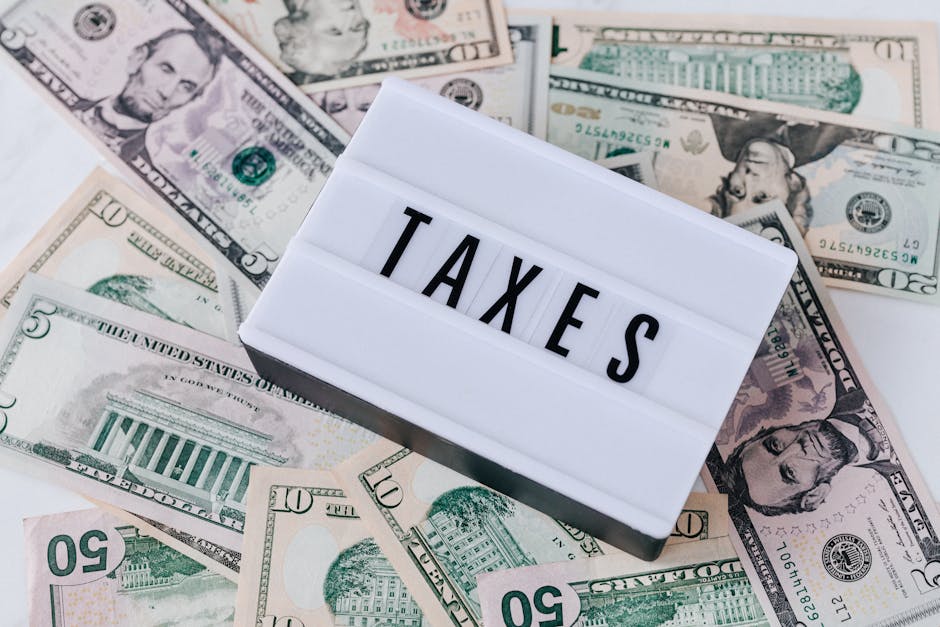Is There No Tax on Cash Tips? Unraveling the Myths and Realities of Tip Taxation
The allure of untaxed income is a powerful one, and the question of whether cash tips are tax-free frequently pops up. The short answer is a resounding no. While the ease of pocketing cash tips without immediate reporting might seem appealing, ignoring your tax obligations surrounding tips carries significant legal and financial risks. This comprehensive guide delves into the complexities of tip taxation, separating fact from fiction and providing clarity on your responsibilities as a tipped employee.
The IRS and Your Tip Income: It’s Not a Game of Hide-and-Seek
The Internal Revenue Service (IRS) considers all tips – whether received in cash, check, or credit card – as taxable income. This applies to all forms of employment where tips are a part of compensation, including waitstaff, bartenders, hair stylists, taxi drivers, delivery drivers, and many others. The myth that cash tips evade taxes is a dangerous misconception. The IRS has various methods for tracking tip income, and failing to report it can lead to serious consequences.
How the IRS Tracks Tip Income
While the IRS doesn’t have a person stationed behind every waiter, they employ several methods to ensure accurate tip reporting:
- Employee Reporting: The most common method involves employees reporting their tips themselves. This often involves keeping a detailed record of tips received and reporting them on their tax returns.
- Employer Reporting: Many employers require employees to report their tips regularly. This data is then used by the employer to accurately report payroll and withhold appropriate taxes.
- Credit Card Tips: Tips paid via credit cards are automatically recorded and reported by the employer, leaving no room for underreporting.
- Information Returns: Certain businesses are required to file information returns (Form W-2) reporting the tips paid to their employees. This data is cross-referenced with individual tax returns.
- Third-Party Reporting: Other businesses, including those that facilitate payments (like ride-sharing apps), may report tips to the IRS.
- Audits: While not a proactive measure, the IRS does conduct audits. If an audit reveals discrepancies between reported income and actual income, penalties can be severe.
The Penalties for Not Reporting Tip Income
The consequences of failing to report tip income can be substantial. These penalties extend beyond simply paying back taxes; they include:
- Back Taxes: You will owe taxes on all unreported tip income, plus interest.
- Penalties: The IRS imposes penalties for underreporting income. These penalties can be significant, often amounting to a percentage of the unreported income.
- Interest: Interest accrues on unpaid taxes, further increasing the overall debt.
- Criminal Charges: In cases of blatant tax fraud or intentional evasion, criminal charges could be filed, leading to fines and even imprisonment.
- Damaged Credit: Tax liens and judgments can severely damage your credit score, making it difficult to obtain loans, rent an apartment, or even get a job.
Understanding Your Responsibilities as a Tipped Employee
The responsibility for accurately reporting tip income lies with the employee. This involves:
- Keeping Accurate Records: Maintain a detailed log of all tips received, including the date, amount, and method of payment.
- Reporting Tips to Your Employer: If your employer requires it, report your tips regularly, as outlined in their policies.
- Reporting Tips on Your Tax Return: Report all tips received on your tax return, using the appropriate forms (Form W-2 and Schedule C).
- Understanding Tip Allocation: If you share tips with other employees (tip pooling), ensure that you accurately account for your share.
Strategies for Accurate Tip Reporting
Several strategies can help you accurately report your tip income and avoid potential tax problems:
- Use a Tip Tracking App or Spreadsheet: Use a dedicated app or spreadsheet to keep a running tally of tips received.
- Maintain Original Receipts (If Applicable): Keep any receipts or records that corroborate your tip income.
- Consult a Tax Professional: If you have questions or concerns about reporting your tips, consult a qualified tax professional for personalized advice.
- Understand Your Employer’s Policies: Familiarize yourself with your employer’s policies on tip reporting and compliance.
Common Myths about Tip Taxation Debunked
Several misconceptions surround tip taxation. Let’s address some of the most prevalent myths:
- Myth: Cash tips are untaxable. Reality: All tips, regardless of payment method, are taxable income.
- Myth: If I don’t report my cash tips, the IRS won’t know. Reality: The IRS has various methods of tracking tip income, and failing to report it can lead to significant penalties.
- Myth: Only tips reported by credit card matter. Reality: Both cash and credit card tips must be reported.
- Myth: Small amounts of cash tips don’t need to be reported. Reality: All tip income, regardless of amount, should be reported.
The Importance of Honesty and Compliance
Ultimately, the most effective approach to tip taxation is honesty and compliance. While the temptation to avoid reporting cash tips might be strong, the potential consequences far outweigh any perceived benefits. By accurately reporting your tip income, you fulfill your civic duty, avoid penalties and legal repercussions, and maintain financial integrity. Remember, it’s not a game; it’s about responsible financial management and adherence to the law.
Seeking Professional Help
Navigating tax laws can be complex, especially for individuals with variable income streams like tips. If you’re uncertain about any aspect of tip reporting, don’t hesitate to seek professional help from a tax advisor or accountant. They can provide tailored guidance based on your specific circumstances and ensure you comply with all applicable tax regulations.

